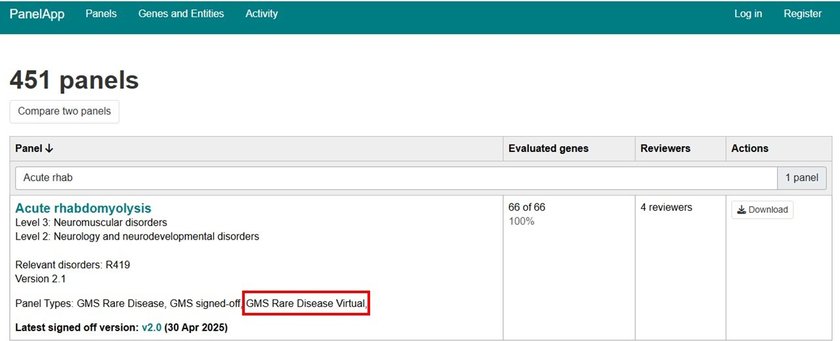Rare disease genomic tests cover testing for a wide range of clinical indications relevant to various specialisms. All testing is aligned to the national genomic test directory, which is updated regularly. Please always check for updates before ordering tests.
If you already know which test you require, the quick links below can help. Otherwise read on for more information.

What is genomic testing for rare diseases?
Rare and inherited disease genetic and genomic testing is available for a wide range of conditions including inherited cancers. The tests that are available, eligibility criteria and specialisms that are approved to order each test are detailed in the eligibility criteria document provided with the national genomic test directory.
The directory also includes several pharmacogenomic tests to assess the suitability of patients for specific treatments. Find out about pharmacogenomic tests.
How to order testing
Click below for a rapid checklist for test ordering, or scroll down for more details
1. Find the test
Please consult the national genomic test directory eligibility criteria document carefully when ordering testing.
- Make a note of the clinical indication for the test you require and whether the Test Method is whole genome sequencing (WGS).
- Ensure that your patient meets the eligibility criteria and that your specialism is able to order that test.
Specific information about prenatal testing is available on our prenatal testing page.
Non-urgent advice: Rare disease tests with separate ordering processes
There are several rare disease tests that have their own ordering processes. These are:
- R14 for acutely unwell children
- R454 for treating symptomatic obstructive hypertrophic cardiomyopathy with mavacamten
Visit our external ordering tests page for information on how to request these tests.
2. Patient information and consent
You must discuss genomic testing with your patient before ordering testing and there needs to be a record of the discussion retained in the patient record. The discussion must include possible implications for the patient and their family members.
Record of discussion forms are provided alongside our order forms. Forms are different for whole genome sequencing (WGS) and non-WGS tests.
Record of discussion forms for WGS tests must be sent to East Genomics along with the test request form.
Find out more about discussing testing with patients and available training to support you.
3. Order forms
Our rare disease order form can be used to request most tests and, where samples are required, should be sent to the lab along with the sample. For whole genome sequencing tests, additional NHS forms must be completed.
Please ensure forms are fully and legibly completed with full clinical details and contact information for us to return results.
Find out about the criteria under which you can request urgent test processing
4. Collecting and sending samples
Ensure that you consult our sample requirement and transport of samples pages before collecting and sending samples to us.
Visit our contact page to find out where to send your samples.
5. Results
Results are sent via email to the provided email address. We encourage you to use a pool email rather than your individual contact information.
We make every effort to return results and meaningful analysis within target turnaround times. Visit our turnaround times page to see what these targets are and our recent performance statistics.
Which tests can I order?
The tests you can order will vary depending on your specialism. Some of the specialisms covered by the rare disease directory are listed below.
Which genes do we look for?
The genes analysed vary depending on the tests performed. Whole genome sequencing will look at the whole genome, many of our tests look at specific panels of genes. You can find out about which gene are included in these panels by using the PanelApp (opens in a new tab).


